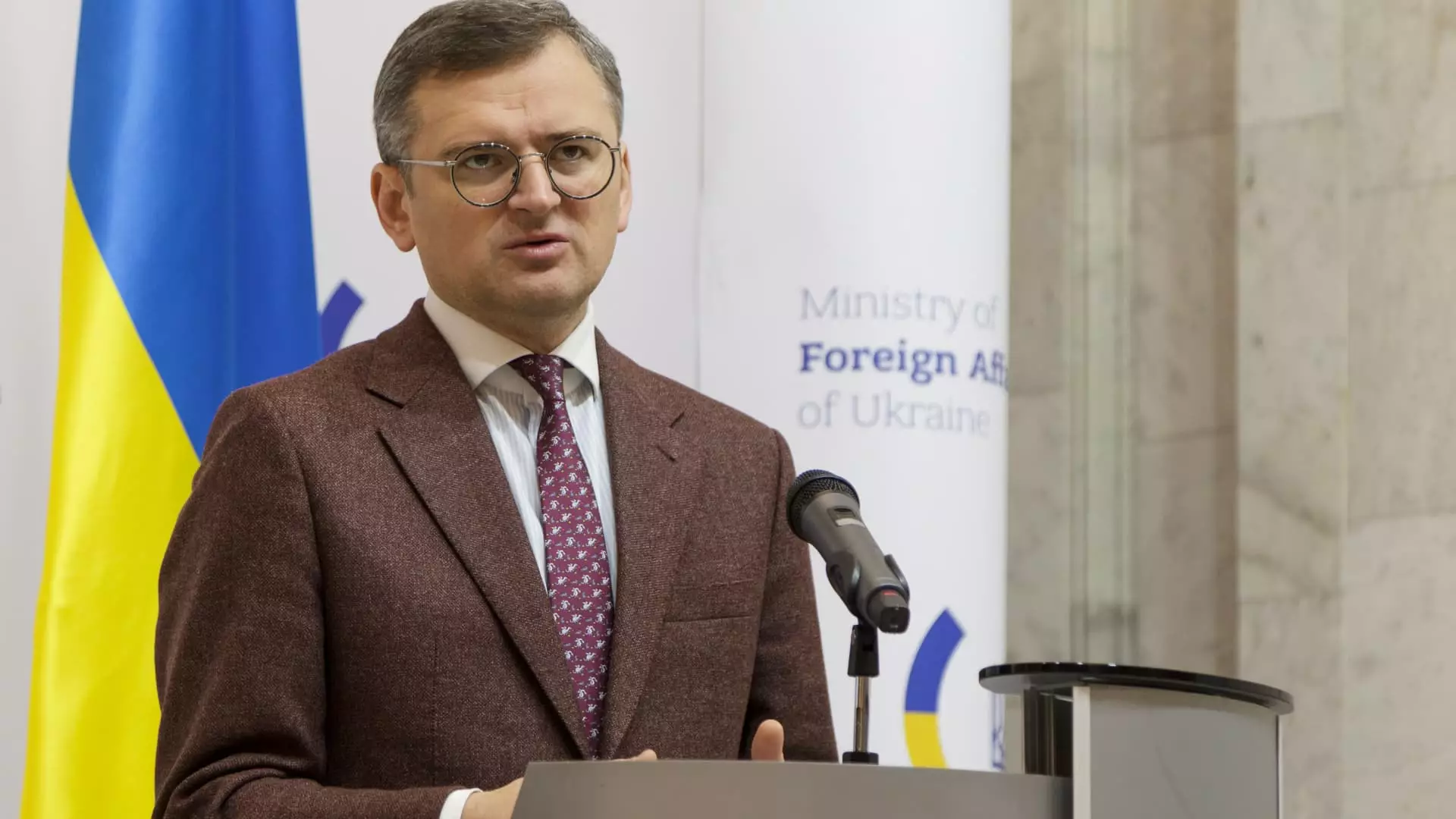The ongoing conflict between Ukraine and Russia presents significant implications not only for Ukraine but also for the broader European continent. Former Ukrainian Foreign Minister Dmytro Kuleba articulates a dire warning: the failure of Ukraine to withstand Russian aggression could lead to war extending into Europe’s streets. This assertion raises critical questions about the European Union’s stability and the geopolitical chess game at play. Without question, the outcome of Ukraine’s struggle is inextricably linked to the security of European nations.
Kuleba provides valuable insights into the limitations of Russian military strategy, asserting that President Vladimir Putin, despite his intentions, cannot effectively manage multiple conflicts simultaneously. The recent shifts, such as the decline of Russian-backed regimes in regions like Syria, underscore the vulnerability of Russia’s military position. Kuleba points out that while Putin can sustain one war, the implications of losing in Ukraine could set a precedent that threatens European security. This reality prompts an examination of how European leaders perceive and respond to Russian aggression, especially in the context of their own national security strategies.
The issue of NATO membership for Ukraine is fraught with complexities. Kuleba argues for the urgency of this membership as a deterrent against future conflicts. The conditional nature of NATO support becomes a focal point, with Kuleba emphasizing that temporary measures, such as halting NATO discussions, might offer a fleeting ceasefire but fail to address the root of the conflict. The crux of the argument lies in the distinction between security guarantees and actual membership—merely receiving comments of reassurance from allies does little to enhance the deterrent against potential Russian advances.
As the political landscape shifts in the United States with the incoming Trump administration, Kuleba expresses cautious optimism. Trump’s historical skepticism towards American involvement in European conflicts raises concerns, yet his call for a ceasefire indicates a potential shift in diplomatic strategy. Meetings between Trump and Ukraine’s President Zelenskyy, alongside French leadership, could pave the way for a new dialogue. However, Kuleba’s insistence that peace efforts must center on forcing Moscow to engage sincerely is paramount. Retreating from traditional diplomatic postures could further embolden Russian aggression and destabilize European nations.
In discussing the potential terms of peace, Kuleba reinforces Ukraine’s unwavering commitment to its territorial integrity. The insistence that no Ukrainian leader could concede land highlights the serious constitutional imperatives at play. This matter not only touches upon national pride but also reflects the broader democratic principles that guide Ukraine’s international relations. Navigating these conversations will demand substantial diplomatic skill and an understanding of legal frameworks governing such negotiations.
Amidst growing tensions, Kuleba’s remarks on the need for Ukraine to respond robustly to Russian advancements caution against passive acceptance of military aggression. While American political figures, including Trump, might criticize escalatory actions, Kuleba’s perspective underscored the necessity of Ukraine defending its sovereignty. The reality is stark—Russia’s latest moves, including large-scale drone and missile attacks on critical infrastructure, necessitate a comprehensive response. In a volatile conflict where the stakes are high, the line between defensiveness and aggression becomes increasingly blurred.
As the situation in Ukraine continues to unfold, the stakes could not be higher for Europe. After years of military engagement and complex diplomacy, Kuleba’s warnings should galvanize European leaders into ensuring Ukraine’s resilience. To foster a stable future for both Ukraine and Europe, support in the form of arms, diplomatic backing, and a unified stance against aggression remains crucial. The path ahead will not be easy, filled with challenges and difficult choices, yet the shared commitment to democracy and sovereignty could illuminate a way forward in the battle against tyranny on the continent. The voice of Ukraine is not just a plea for assistance but a clarion call for collective security in an increasingly uncertain world.


Leave a Reply